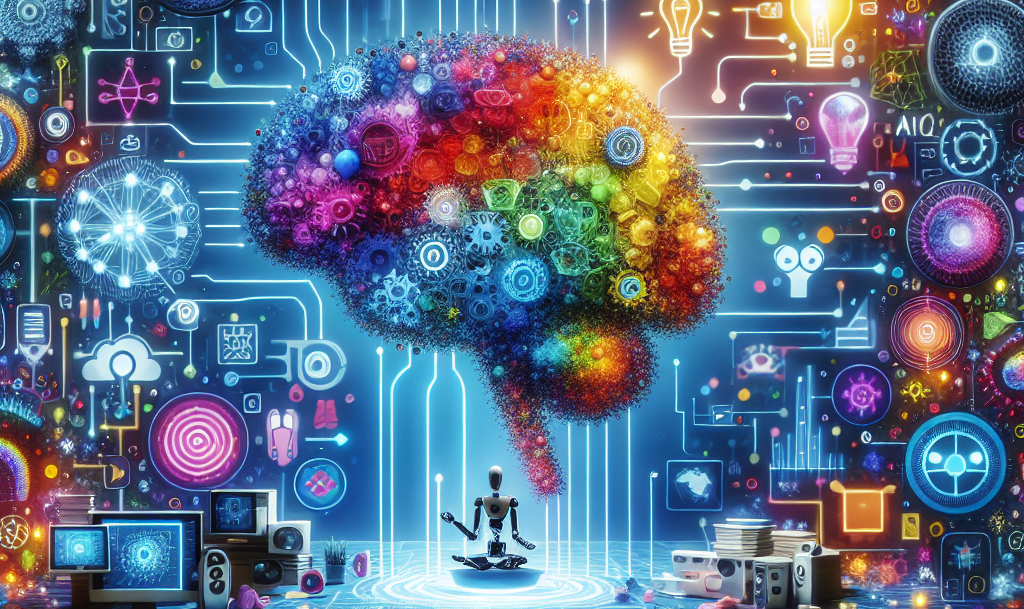What Is ChatGPT?

ChatGPT is an advanced conversational AI model developed by OpenAI that has transformed the way we interact with computers. Built upon the Generative Pre-trained Transformer (GPT) architecture, this model is designed to generate human-like text by processing natural language input and predicting contextually relevant responses. It has become an essential tool in various domains and continues to evolve as part of the exciting landscape of artificial intelligence.
The Evolution of ChatGPT
ChatGPT’s roots lie in the groundbreaking advancements of transformer models, which revolutionized natural language processing by enabling systems to understand context and generate fluent responses. Early iterations of GPT focused largely on text continuation and prediction, but as research advanced, models became more refined and capable of handling a spectrum of conversational tasks. ChatGPT represents a convergence of these innovations, having been trained on massive datasets that encompass diverse language patterns and topics, preparing it to handle everything from casual dialogue to in-depth technical inquiries.
How ChatGPT Works
Deep Learning and Pre-training
At its core, ChatGPT is built using deep learning techniques. It learns by being pre-trained on a wide range of internet text, absorbing the statistical patterns of language. This process allows ChatGPT to generate responses that seem almost intuitive—by predicting what word should come next based on what has come before. The extensive pre-training is what imparts the model with the ability to cover various topics and mimic the nuances of human expression.
The Transformer Architecture and Attention Mechanism
Central to ChatGPT’s effectiveness is its use of the transformer architecture, which employs a mechanism known as "attention." This mechanism enables the model to weigh the importance of different words relative to each other in a sentence. By focusing on key parts of the input, ChatGPT features a level of context awareness that allows for more accurate and meaningful responses. This capability is essential for maintaining the flow and coherence of long conversations, making interactions feel natural and tailored to the user's needs.
Applications of ChatGPT
ChatGPT’s versatility opens up a wide array of practical applications:
- Customer Service: Companies leverage ChatGPT to power chatbots that provide quick and efficient responses to customer inquiries, reducing wait times and enhancing service quality.
- Content Creation: Writers, marketers, and researchers use ChatGPT to generate drafts for articles, blog posts, social media updates, and even to brainstorm creative ideas. Its output can help streamline the creative process and overcome writer’s block.
- Education and Tutoring: Students and educators alike benefit from ChatGPT’s ability to explain complex concepts clearly, provide summaries of detailed topics, and even offer guidance on homework or projects.
- Programming Help: Developers have found that ChatGPT can assist by generating code snippets, debugging, and explaining programming concepts, thus serving as a valuable resource in the fast-paced world of software development.
Benefits and Limitations
Benefits
- Rapid Response: One of the most significant advantages of ChatGPT is its ability to produce prompt, accurate, and contextually aware responses, making it an invaluable tool for quick information retrieval.
- Versatile Communication: Whether it’s casual conversation or professional dialogue, ChatGPT adapts its tone and vocabulary to suit the context, fostering more engaging interactions.
- Accessibility and Scalability: ChatGPT is available across various platforms and can be integrated into existing applications, bringing advanced AI capabilities into everyday use for a broad audience.
Limitations
- Reliability of Information: Despite its impressive language skills, ChatGPT may produce responses that are plausible yet inaccurate. Users should always cross-check critical information from reliable sources.
- Bias in Training Data: Since ChatGPT learns from vast collections of text available on the internet, there is the potential for the model to reproduce unintentional biases present in its training material.
- Depth of Understanding: While the model can mimic human conversation with remarkable fluency, it doesn’t “understand” content in the human sense, which means that its responses may lack the depth needed for highly specialized, nuanced topics.
The Future of Conversational AI
The advent of ChatGPT has set a new standard for how we interact with machines. As AI research continues to progress, we can expect even more refined and capable versions of conversational models that leverage real-time data, offer enhanced contextual awareness, and become better at managing ethical considerations in content generation. The integration of such models into everyday life—from personal assistants to professional tools—signals a future where AI not only supports but also augments our natural communication abilities.
Conclusion
ChatGPT is much more than a technology trend; it signifies a paradigm shift in how we engage with digital systems. By bridging the gap between human language and machine understanding, ChatGPT opens up innovative pathways in customer service, content creation, education, and beyond. While it comes with its set of challenges, the potential of ChatGPT to revolutionize everyday interactions signals a promising future where artificial intelligence enhances and enriches our communication landscape.






